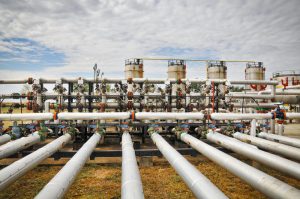
Legislation introduced by U.S. Rep. Bill Flores (R-TX) to bring certainty and transparency to the permitting process for interstate natural gas pipelines cleared the House on Wednesday on a bipartisan vote of 248-179.
The Promoting Interagency Coordination for Review of Natural Gas Pipelines Act, H.R. 2910, would reinforce Federal Energy Regulatory Commission’s (FERC) lead authority in the permitting process. The legislation garnered support from U.S. Reps. Marsha Blackburn (R-TN) and Fred Upton (R-MI).
While America is a top producer of natural gas, a lack of pipeline infrastructure in certain areas of the country has led to inflated costs for electricity for both consumers and job creators, Flores said.
“The Promoting Interagency Coordination for Review of Natural Gas Pipelines Act will allow us to fully harness this environmentally friendly, affordable and abundant resource by bringing greater transparency and accountability to the natural gas permitting process for interstate pipelines,” Flores said. “These improvements encourage a more robust and reliable pipeline infrastructure system, which in turn will deliver clean, affordable natural gas to hardworking American families.”
Speaking in support of the bill on the House floor, Blackburn said it would provide hope to millions of workers in the energy sector, and she read from a letter of support from an energy sector employee.
“Giving FERC the authority that they need to go in and consolidate and simplify this environmental process for these interstate gas projects is the right thing to do,” Blackburn said. “Many times, that slows these projects down and causes the situation that the International Union of Operating Engineers (describes when) you have multiple permits that are required, and they are from multiple agencies and multiple levels of government. Any time you are going through that, there are more opportunities for mistakes and it is going to be more costly.”
Upton, the chairman of the House Energy and Commerce Subcommittee on Energy, agreed that establishing FERC as the lead agency would promote certainty, accountability and transparency that would ultimately help modernize the country’s natural gas pipeline infrastructure.
Many critical pipeline projects have been delayed due to the need for multiple permits, such as those required under the Clean Water Act, the Endangered Species Act and the Clean Air Act, Upton noted.
“This bill is going to improve the permitting process by strengthening the lead agency role of FERC in further defining the process for participating in federal and state agencies, and the intent of these provisions is to involve stakeholders sooner so that they can be involved in the setting of the schedule and identify issues of concern earlier in the process,” Upton said in remarks on the House floor.
Furthermore, the bill would also encourage more timely and efficient reviews in compliance with the National Environmental Policy Act.
“To be clear, we are not skipping steps, we are just saying that one part of the process shouldn’t hold up the entire project if progress can be made on other required permits,” Upton said.



